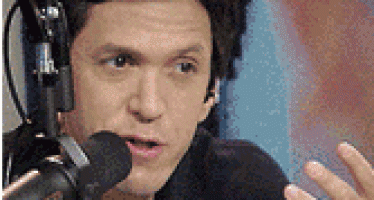State of the Union: Obama, the rich, the poor and California
In his State of the Union address tonight, President Obama is expected to talk about the gap between rich and poor Americans. He has benefited himself. At the 2000 Democratic National Convention in Los Angeles, his credit cards were maxed out and he had difficulty renting a car.
Then Democrats promoted him at their 2004 convention, he landed in the U.S. Senate, became a presidential candidate, sales of his books took off, and he became a multimillionaire. Nice work if you can get it.
Meanwhile, under him real wages — for middle-class and poor folks — have dropped 3.2 percent during his presidency.
Income equality also is the excuse for action California. Reports the Chronicle:
“When state voters cast their ballots in November, they could be making decisions on several measures intended to bring the income levels of rich and poor closer together. They include a cap on hospital executives’ pay, more taxes on oil companies and a higher minimum wage.”
If those pass, here’s what would happen:
- Cutting hospital execs’ pay would encourage the best of them to leave the state, making our hospitals less efficient, possibly killing some patients.
- Taxes on oil companies would be passed on to drivers through higher gas prices at the pump.
- A minimum wage would destroy tens of thousands of jobs, as companies unable to make the higher payrolls closed their doors or, if they could, moved to other states and countries.
What helps
What really helps the poor and middle-class is what President Reagan did in the 1980s:
- Cut taxes.
- Cut spending.
- Cut regulations.
Executive action
But that’s not going to happen. The president wants to keep Obamacare perking as his legacy. He needs its tax increases to fund its regulations and spending.
And he’s now unilaterally imposing new regulations through executive fiat:
“But he doesn’t like to do this, does he?” the NPR host asked Podesta.
“Uh, I think he’s warmed up to it,” Podesta replied, laughing.
“And I think you’ll see that across a wide range of topics, including retirement security, moving forward on his climate change and energy transformation agenda,” said Podesta.
“There’s a lot that he has the authority to do that’s vested in him under the laws of the United States and his constitutional powers, and I think that he’s looking forward to a year of action, and I think he’s looking forward to tonight (when he gives the State of the Union speech) as a breakthrough year where he can lay out some of these practical, concrete ideas that will get people onboard a stable economic footing and see their wages going up for the first time in a long time,” said Podesta.
Actually, such dictatorial powers are not “vested in him.” But who follows the Constitution any more?
Government workers
One group seeing its wages increase is government workers:
President Obama, in the first of potentially many executive actions tied to his State of the Union address, will unilaterally increase the minimum wage for workers under new federal contracts to $10.10 an hour, from $7.25, in an effort to build momentum for a minimum wage hike for all Americans.
The executive order, which had been pushed by progressive Democratic lawmakers, applies to all contractors performing services for the federal government and would affect more than 2 million employees, according to an administration official.
Of course, that’s easy to do if the costs are passed on to taxpayers.
Meanwhile, Congress, and the American people and democracy have become superfluous as the country gets poorer by the minute. That’s the state of the union.
Related Articles
Reuters bests state media at covering San Bernardino’s collapse
April 1, 2013 By Chris Reed If you had to fashion a nut graph to explain why so many local
School Choice Week kicks off today
Today begins National School Choice Week, designed to heighten awareness for innovations in education. According to SchoolChoiceWeek.com: “Independently planned by
Mitch Albom, CWD contributor talk about Silicon Valley, diversity
Jesse Jackson’s on-again, off-again campaign against Silicon Valley for the lack of blacks, Latinos and women in its tech workforce




